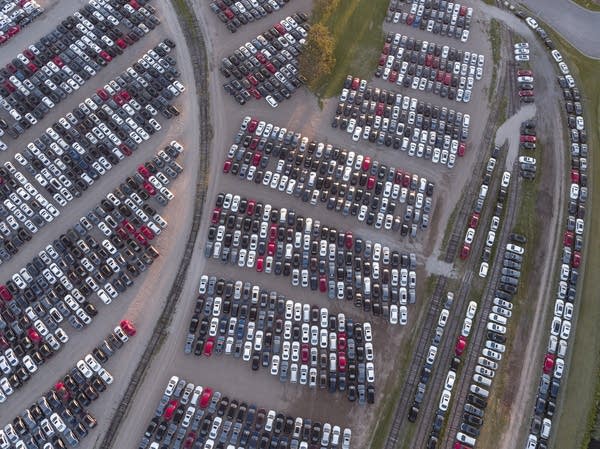Fate of thousands of recalled Volkswagens stored in Brainerd worries neighbors

At the Brainerd Industrial Center, a former paper mill, thousands of recalled Volkswagen diesel vehicles are being stored.
Steve Fines for MPR News
Go Deeper.
Create an account or log in to save stories.
Like this?
Thanks for liking this story! We have added it to a list of your favorite stories.


